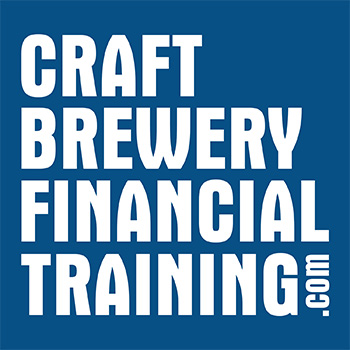In normal times, it’s a challenge to manage brewery operations, and stay on top of the finances. There’s a lot to juggle, and never enough time to get it all done. In these abnormal times, these tasks become even more difficult.
However, one way to manage your brewery business differently, and more effectively, is with open book management. Open book management (OBM) is a system in which employees are provided with financial information so that they can make better business decisions.
The idea is that employees are more motivated, engaged, and productive when they are treated as business partners (who commonly have access to financial data) instead of employees. In these uncertain times, more information can provide employees with more certainty to make better decisions.
Open Book Management has four basic elements:
- Train employees in financial literacy so they can read and understand financial statements.
- Empower employees to use financial information when making business decisions.
- Trust employees as business partners with proprietary company information
- Reward employees fairly for the brewery’s success
Train employees in Financial Literacy
Financial literacy is the ability to read and understand the numbers of your brewery business so that you can improve financial results. Improving financial results may include growing sales, strengthening gross margins, or increasing cash flow. In today’s uncertain times, financial literacy is more important than ever.
The numbers of your brewery business are reported on the financial statements – the income statement, balance sheet and statement of cash flows. Each of these reports provides vital financial information to understand what’s going on in your business
The financial statements are the scoreboard for your brewery and the numbers show whether you are winning or losing. The financials show you where you are in relation to your goals and how much harder you must push to hit the targets.
Open book management requires that you train employees in financial literacy so that they can know the score, and help the brewery win the financial game.
Empower employees to make decisions
In most organizations there is a decision-making hierarchy. Owners or managers make the decisions, and employees carry out the directives. With open book management, everyone is responsible for making decisions and has the authority to do so.
If a problem needs to be fixed, employees are empowered to fix it. If an opportunity needs to be seized upon, employees are obliged to act. There is no waiting around for a manager to make these decisions. The move lies squarely on the shoulders of employees.
With open book management, employees use their understanding of the numbers – financial literacy – to inform their decisions. For example, suppose a brewery uses a mobile canning company to package beer. The packaging manager understands the costs associated with this service and can make an informed decision about whether the purchase of canning line would benefit the company financially. The packaging manager understands how to build a return on investment calculation and is empowered to make a purchase recommendation based on the numbers.
Trust employees with proprietary financial information
Open book management centers around trust. Do you trust your employees with sensitive financial information? What if confidential information is shared with competitors? What if it’s leaked out on social media? Sharing information requires trust.
OBM requires that we trust employees to handle sensitive information with professionalism and confidentiality. The best way to earn the trust of employees is to be trustworthy yourself. Be transparent, share the information that will help them do their job better, or have a better understanding of the business. When you call upon the highest level of thinking from your employees, you get the highest level of results.
Reward employees for brewery success
In an open book management system, employees are asked to learn new things in addition to their core job. Brewers are asked to understand the costs that go into making the beer. Brewery salespeople are asked to understand product margins for each brand in the portfolio. Taproom staff are asked to learn the average order per customer, for example. Everyone in the organization needs to learn something new to make the open book management system work properly.
The goal of open book management is to create a culture of business owners. OBM teaches employees to think of themselves as business people instead of workers. To make this real, business people need a stake in the outcome – a reward for brewery success. As such, part of what they earn should be tied to company financial performance.
A stake in the outcome gives employees a vested interest in improving financial results. The brewer learns about the costs that go into making the beer so that she can find ways to be more efficient. The salesperson learns about product margins so that he understands the importance of proper pricing. The taproom server learns about the average order per customer to find ways to increase customer sales.
Learning about the financial aspects of the business that are within the employee’s area of control moves the brewery towards the goal of improving overall financial results. And towards the reward of having employee business people share in the success.
Wrap Up and Action Items
Open book management is a system where financial information is shared with employees so that they can make better decisions. Better decisions lead to better financial outcomes, and better financial outcomes lead to a stronger brewery business for everyone.
OBM requires that you train, empower, trust and reward employees. Train employees in financial literacy so they understand the finances of the business. Empower employees to make decisions and encourage them to do so. Trust employees with sensitive information and reward them when brewery financial success is achieved.
In these uncertain times, open book management provides a way to manage your business more effectively and to reward your employees for a job well done.





